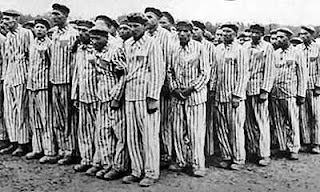I felt out of my element with these folks, but also somehow above-it-all, quintessentially shut out, but connected to some other stratosphere, some other form of culture. Although everyone at this lunch was interested in supporting people with disabilities to the best of their abilities, we seemed to have conflicting ways of looking at, and probably doing, the work. But we couldn't voice those conflicts because we were so busy talking about our own little realities and problems and crises.
"Philosophy" might be too big of a word here, but what other word is there?
Here's Merriam-Webster's elucidation: Philosophy is "the pursuit of wisdom: a search for a general understanding of values and reality by chiefly speculative rather than observational means: an analysis of the grounds of and concepts expressing fundamental beliefs."
It's values I'm talking about, beliefs, set aside from observation. That gets scary when you're sitting and eating a grilled chicken sandwich with people who also are dedicating their work lives to helping people with disabilities, but "help" and "support," if they aren't defined outside of systems definitions, if they aren't given a philosophical scouring and inspection, become concepts that slip into discussions of "what works and what doesn't work," as in: there are some people who can be a part of their worlds, get jobs, have friends, have real lives, but there are other groups of people who can't because they have significant, complex disabilities. Once that dichotomy gets placed on the table, and there isn't any way to address the values/beliefs/philosophies behind it, the discussion takes on its own sad and tired momentum. Anecdotes become the main form of discourse. "Worst case scenarios" take over the way we talk and respond and communicate.
We always end up at a standstill: if we had more funding, it we had more staff, if we had a better community, if we had better psychiatrists, better family support, better etc.
All of that stuff about needing better support is of course very valid in the lives of people with disabilities, especially people who are labeled with a variety of disabilities, but also wishing for better becomes a way to jettison the discussion on how to make things better. It becomes a cop-out camouflaged in professional exasperation and eventual despair. "I guess we'll just need to keep trying" becomes the way to codify failure.
Of course we need better supports, but we also need to know pretty specifically and meaningfully just what those better supports would be supporting better, if that makes sense. Because without that kind of an eye on the prize, the reason for doing anything becomes rote activity, becomes an exercise in blowing off steam.
I guess maybe that is what these lunch kinds of meetings are about, but I really feel a link was missing, words were missing. We didn't know how to discuss anything because we did not have an agreement on what we might want things to mean. For me, every professional discussion I'm going to have is about how to figure out better access for people to the actual world they're living in, not the program they have to go to. I'm going to try to guide discussion toward jobs, relationships, freedom and justice and all that, for everyone, no matter what degree of disability has been attached to their person. With that in mind, then, the lack of resources, the lack of whatever, becomes something we have to work on, but also something we have to negotiate realistically to still get whatever we can done in the meantime, and as we do that we often discover the unsurmountable is surmountable. "Health and safety," in this context for me, is a baseline, not even the beginning of a journey, but the launching pad for connection, for what's next and next and next.
If we have a discussion about philosophy first, getting it all out there, then the complaints about what is lacking might become more real. The reason for trying to solve problems might get attached to something other than the problem being discussed. We move forward in whatever way we can, whether of not the world and the system and everybody else is ready.
That's what I'm looking for. That kind of discussion, that kind of momentum. I want us to have a "Come to Jesus" moment prior to every professional gig I guess.
Why are we here? What's the purpose for all of this talk? Why are we even trying?
I hate getting cute, but why not? I'm going to go the New Yorker cartoon route:
How do you stop and think before you go into the same old routine, the same bitching and moaning? How do you just stop and think about what all of this is supposed to mean before you move into what's wrong?


































